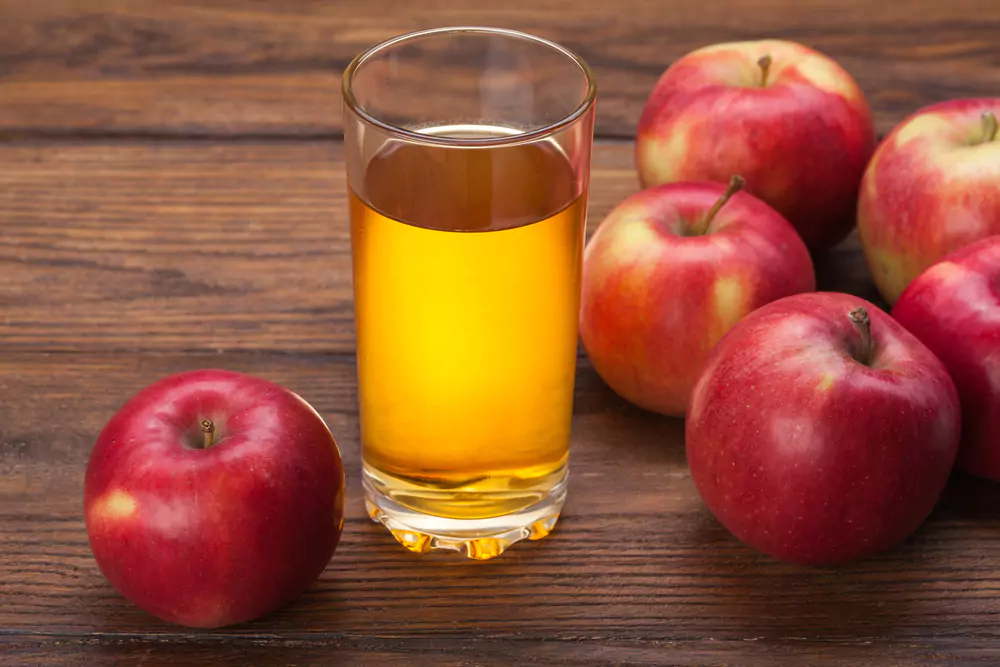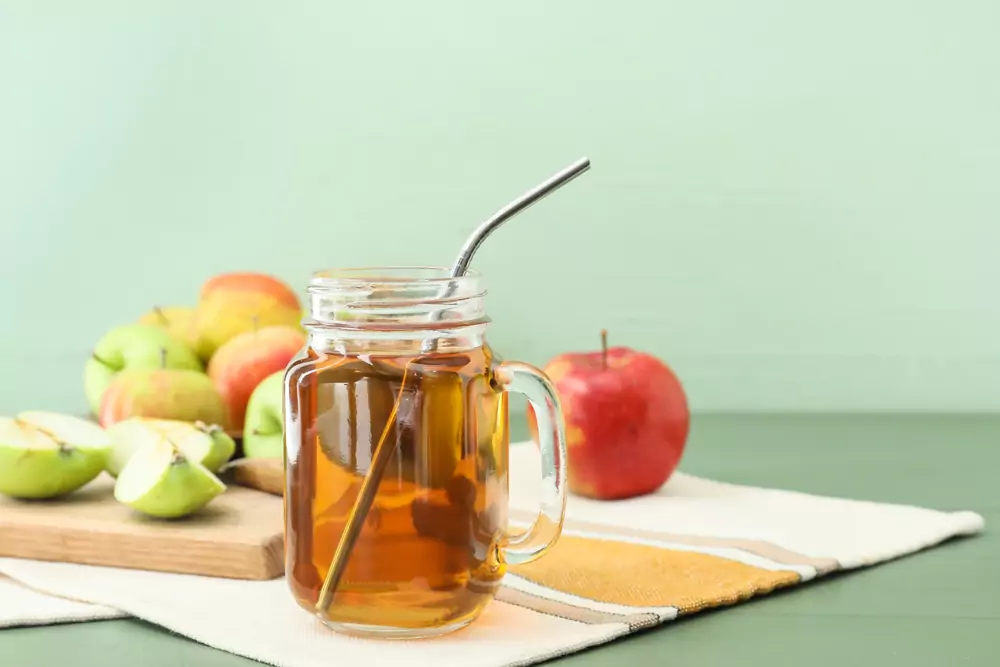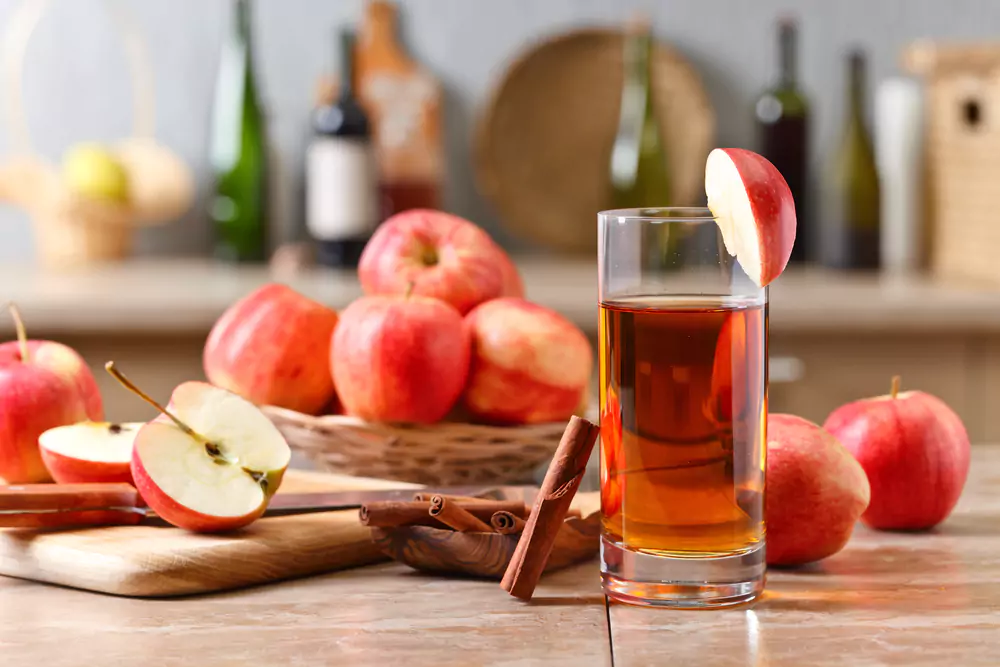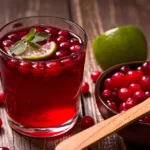Have you ever wondered, “How long is apple juice good for after opening?” We’ve all been there—poured a refreshing glass of apple juice, only to realize we won’t finish the entire bottle in one go. It’s a common dilemma, and in this article, we’ll provide valuable insights on ensuring your opened apple juice stays safe, tasty, and enjoyable for as long as possible. So, to maximize the shelf life and quality of your opened apple juice, read on to discover some helpful tips and guidelines.
Can Apple Juice Go Bad?
Yes, apple juice can indeed go bad. Over time, exposure to air and fluctuations in temperature can lead to spoilage. Signs that apple juice has gone bad include a sour or off odor, a strange taste, visible mold growth, cloudiness, or unusual color changes. It’s crucial to store apple juice properly, keep it sealed, and consume it within a reasonable timeframe after opening to ensure its freshness and safety.
How Long Is Apple Juice Good For After Opening?
Once you open a bottle of apple juice, it’s best to finish it within 7 to 10 days, as long as you store it in the refrigerator and keep it sealed tightly. After this period, the juice may start to lose its freshness, taste, and quality, so it’s essential to use your senses—smell and taste—to check for any signs of spoilage, such as an off odor or strange flavor, before consuming it.
What Happens If You Drink Apple Juice That Has Gone Bad?
Drinking apple juice that has gone bad can make you sick. Spoiled apple juice may contain harmful bacteria or molds that can cause food poisoning or stomach upset. It’s essential to check the juice for any signs of spoilage, like a bad smell or unusual taste, before consuming it, and if you notice any of these signs, it’s best to avoid drinking it to stay safe and healthy.
Types Of Apple Juice To Consider

There are several types of apple juice to consider, each with its unique characteristics and flavors. Here are some popular types:
Filtered Apple Juice
This type of apple juice undergoes filtration to remove pulp and solids, resulting in a clear and smooth texture.
Unfiltered Apple Juice
Also known as cloudy apple juice, this variety retains the pulp and sediment from the pressed apples, giving it a thicker consistency and a more robust flavor.
Organic Apple Juice
Made from organically grown apples, this juice is produced without synthetic pesticides or fertilizers, appealing to those seeking a more natural option.
Cold-Pressed Apple Juice
Cold-pressed apple juice is made using hydraulic press technology to extract the juice from the apples without exposing it to heat, which helps preserve nutrients and enzymes.
Pasteurized Apple Juice
This apple juice undergoes pasteurization, which involves heating it to eliminate harmful bacteria and extend its shelf life.
Concentrated Apple Juice
Concentrated apple juice is produced by removing water from the juice, resulting in a more potent flavor and allowing for more accessible storage and transportation.
Fresh-Pressed Apple Juice
Fresh-pressed apple juice is made by pressing fresh apples to extract the juice, often found at local orchards or farmers’ markets for a truly authentic taste.
Here is a table comparing the nutritional value of different types of apple juice per 8-ounce (240 ml) serving:
| Nutrient | Regular Apple Juice | Organic Apple Juice | Unsweetened Apple Juice |
| Calories | 120 | 110 | 50 |
| Total Fat (g) | 0 | 0 | 0 |
| Sodium (mg) | 10 | 10 | 10 |
| Total Carbohydrates (g) | 28 | 28 | 13 |
| Sugars (g) | 24 | 24 | 10 |
| Protein (g) | 0 | 0 | 0 |
Signs Of Spoilage

Spoilage refers to the process by which food becomes unfit for consumption due to the growth of microorganisms, chemical changes, or other factors. Recognizing the signs of spoilage in food is essential to prevent illness and ensure food safety.
Visual Signs
One of the most common signs of spoilage is changes in the appearance of the food. This can include discoloration, mold growth, or a slimy texture. For example, meat that has turned brown or gray, fruits and vegetables that have developed mold, or dairy products that have curdled are all visual indicators of spoilage.
Texture and Smell
Spoiled food often changes texture and smell. For instance, meat that feels slimy or sticky to the touch, fruits, and vegetables that have become mushy or slimy, or dairy products that emit a sour or unpleasant odor are all indications of spoilage.
Taste
In some cases, spoiled food may also exhibit changes in taste. This can include a sour or off-flavor in dairy products, a rancid taste in oils and fats, or a bitter taste in fruits and vegetables.
Packaging
Damaged or swollen packaging can also be a sign of spoilage. Cans bulging, jars with broken seals, or packages with visible leaks may indicate that the food inside has spoiled.
The Rule Of Thumb For Storing Apple Juice
The rule of thumb for storing apple juice is to keep it in the refrigerator at all times, whether it’s unopened or has been opened. The cold temperature helps slow down the growth of bacteria and preserves the juice’s freshness. Additionally, ensure the container is tightly sealed to prevent air from entering, which can cause the juice to deteriorate more quickly. Storing apple juice this way ensures it remains safe to drink and maintains its quality for an extended period.
How To Store Apple Juice?
To store apple juice, follow these steps:
- Store apple juice in a clean, airtight container in the refrigerator to maintain freshness and prevent spoilage.
- Keep the container away from direct sunlight and heat sources to avoid the growth of harmful bacteria and spoilage.
- If you plan to store apple juice for an extended period, consider using a glass or plastic bottle with a tight-fitting lid or cap to prevent leakage and contamination.
- For long-term storage, consider using a sterilized glass or plastic bottle with a tight-fitting lid or cap to avoid contamination and spoilage.
- Always check the expiration date and the condition of the apple juice before consuming it.
How Long Can Apple Juice Be Stored For?
Unopened apple juice can be stored for an extended period, often several months beyond its “best by” or “use by” date, as long as it’s kept in a cool, dark place, away from direct sunlight. Once opened, apple juice should ideally be consumed within 7 to 10 days when refrigerated and tightly sealed to maintain its freshness and flavor. For even longer storage, you can freeze opened apple juice in an airtight container, keeping it safe for up to 8-12 months, though the quality may slightly diminish over time.
What To Do With Leftover Apple Juice?
There are several creative and practical ways to use leftover apple juice, ensuring it doesn’t go to waste. Here are some ideas:
Cooking and Baking
Apple juice can be used as a flavorful ingredient in various recipes. It can be used as a marinade for meats, a sweetener in sauces and dressings, or as a substitute for other baking liquids, such as muffins, cakes, or bread.
Cocktails and Mocktails
Apple juice can be incorporated into refreshing beverages. It can be mixed with other fruit juices or carbonated drinks to create delicious cocktails or mocktails. Additionally, it can be used as a base for punches or spritzers.
Freezing for Later Use
Consider freezing it in ice cube trays if you have excess apple juice. Once frozen, the apple juice cubes can chill and flavor drinks without diluting them.
Smoothies and Popsicles
Leftover apple juice can be blended with fruits and yogurt to make nutritious smoothies. It can also be frozen in popsicle molds to create homemade fruit popsicles.
Vinegar Production
Apple juice can be fermented to make homemade apple cider vinegar. This process involves allowing the natural sugars in the juice to ferment into alcohol and then fermenting it into vinegar.
Conclusion
In conclusion, the longevity of your opened apple juice largely depends on proper storage and timely consumption. Remember, the general rule is 7 to 10 days in the fridge with a secure seal for optimal freshness.
However, if you need to store it longer, freezing is an option that can extend its shelf life. Keeping a watchful eye, using your senses, and following these guidelines will help ensure that your apple juice remains safe and enjoyable for as long as possible. Cheers to longer-lasting, delicious apple juice!
FAQs
How Long Is Apple Juice Good In Refrigerators?
Open apple juice is generally good in the refrigerator for 7 to 10 days.
Can You Drink Apple Juice After 7 Days?
Yes, you can drink apple juice after seven days if stored properly.
How Long Does Bottled Juice Last In The Fridge After Opening?
Bottled juice can last 7 to 10 days in the fridge after opening.
Does Apple Juice Go Bad?
Apple juice can only go good if stored properly or shows signs of spoilage.
What Happens If You Drink Expired Apple Juice?
Drinking expired apple juice can lead to illness, as it may contain harmful bacteria or molds that can make you sick.






